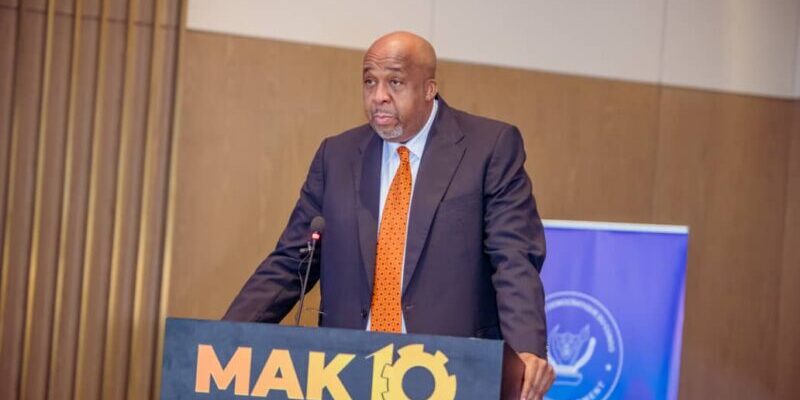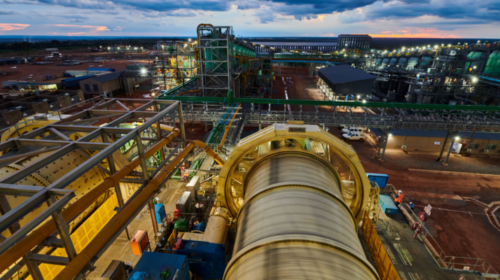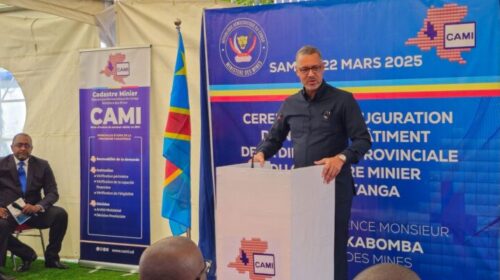Minister Aimé Molendo Sakombi Outlines Vision for DRC’s Oil Sector Growth and Sustainability
On Thursday, November 14, 2024, Minister of Hydrocarbons Aimé Molendo Sakombi provided an in-depth analysis of the Congolese oil sector at the Hilton Hotel, during the Hydrocarbons House event, held alongside the tenth edition of the Makutano Forum.
While the Democratic Republic of Congo (DRC) is often called a “geological scandal” due to its vast natural resources, its oil production is currently limited to a mere 20,000 barrels per day—a stark contrast to the country’s potential.
Minister Sakombi emphasized that key regions like the Central Basin, the Albertine Graben, and Lake Kivu hold untapped reserves of oil and gas, which could significantly contribute to the country’s energy needs.
The Central Basin alone spans 800,000 km², with recent studies estimating reserves of more than 40 billion barrels of oil and 17 billion cubic meters of natural gas. Shared with Congo-Brazzaville, the basin remains largely unexplored.
Minister Sakombi also highlighted the Albertine Graben, which hosts proven reserves on the Ugandan side, and Lake Kivu’s methane gas as valuable potential energy sources for the country.
A Sustainable Approach to Oil Exploration
In light of growing global climate concerns, the Minister stressed the need for responsible and sustainable oil exploitation in the DRC.
As environmental challenges mount, Minister Sakombi emphasized that economic gains should not come at the cost of the environment.
He expressed a firm commitment to adopting policies aimed at reducing greenhouse gas emissions and promoting eco-friendly practices in the oil industry. This includes implementing strict environmental standards to protect ecosystems and safeguard local communities.
Addressing Challenges and Exploring Innovative Solutions
Despite the liberalization of the downstream oil sector in 2001, which allowed for private investments and better competition, the sector faces persistent challenges.
Minister Sakombi noted that the lack of competition in the market results in inefficiencies, hindering economic progress and straining public finances. Additionally, smuggling of petroleum products across borders remains a significant issue, leading to substantial fiscal losses.
To combat these issues, the Ministry of Hydrocarbons plans to introduce innovative measures, including molecular marking of petroleum products and the use of electronic seals with real-time tracking. These initiatives aim to improve control, reduce illicit activities, and foster growth within the sector.
![]()





